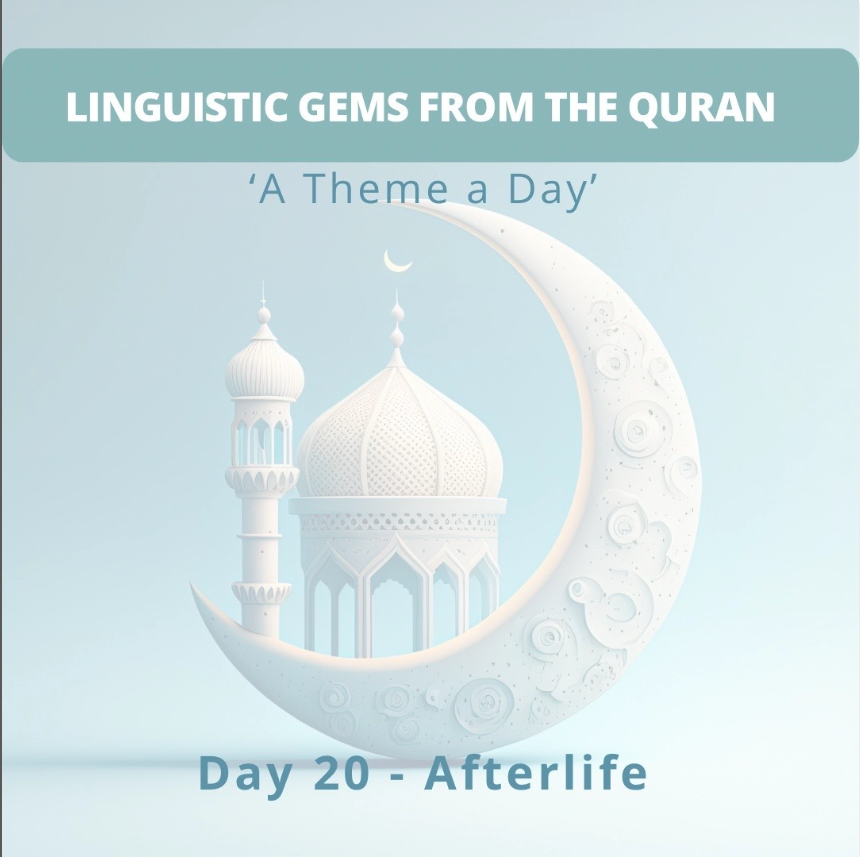 In the Qur’an, Allah introduces us to various names for Paradise, each reflecting different facets of its grandeur and majesty.
In the Qur’an, Allah introduces us to various names for Paradise, each reflecting different facets of its grandeur and majesty.
These names offer a glimpse into the splendour, peace, honour, and contentment that await believers in the Hereafter.
One such name is الجَنَّة al-Jannah, which appears in singular, dual, and plural forms throughout the Qur’an (ref: 2:25, 55:46, 89:30). Derived from the root “ج ن,” Jannah signifies concealment.
This term highlights the notion that Paradise is a reward currently hidden from us. Additionally, the name Jannah refers to the dense gardens in which the ground is concealed by lush trees.
Another name found in the Qur’an is الروضة al-Rawdah, mentioned twice (42:22, 30:15).
Al- Rawdah originates from the root “ر و ض,” which originally refers to taming a wild beast.
In the Arabic language, a rawdah describes a verdant land filled with plants, water, and flowers. This term connects to the original root meaning since the land has been transformed – or tamed – by the growth of plants and flowers.
Though the terms al-Jannah and al-Rawdah share similarities, there is a distinct difference between the two terms.
It is said that al-Rawdah emphasises the beauty, goodness, and delights that are visible in the Hereafter, while al-Jannah underscores the hidden beauty, goodness, and delights that await us.
Comprehending the exact significance and implications of the diverse names for Paradise in the Qur’an offers insight into its magnificent essence and the bliss that awaits believers in the Hereafter, ultimately inspiring us to strive towards these heavenly rewards.
And Allah knows best.
